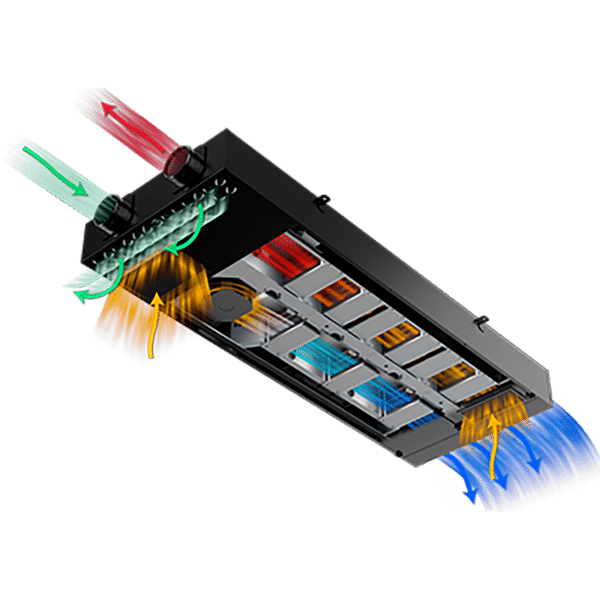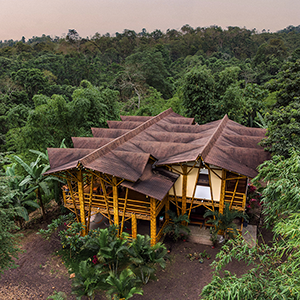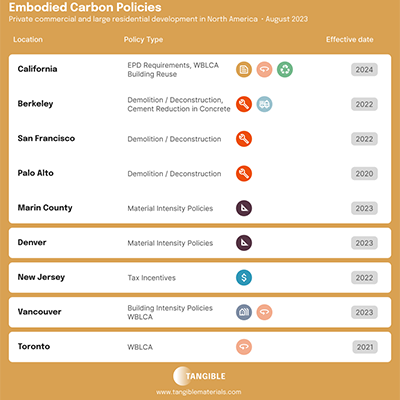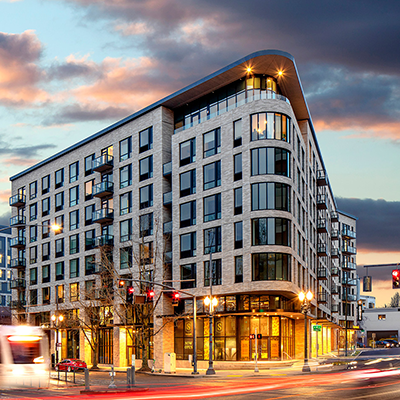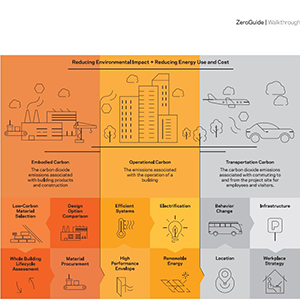by Jessica Martinez
Structural Sustainability Specialist at DCI Engineers
 Historically, development of sustainability goals relied heavily upon green building rating systems guidance, focused largely on operational carbon and placing less emphasis on embodied carbon. Coupled with the misconception that achieving measurable carbon reductions comes at a cost premium, structural engineers have been left out – like we haven’t had a seat at the table.
Historically, development of sustainability goals relied heavily upon green building rating systems guidance, focused largely on operational carbon and placing less emphasis on embodied carbon. Coupled with the misconception that achieving measurable carbon reductions comes at a cost premium, structural engineers have been left out – like we haven’t had a seat at the table.
But with over half of new global construction carbon emissions being attributed to embodied carbon between now and 2040, structural engineers have an unprecedented opportunity and responsibility to impact meaningful change through managing the embodied carbon in the building structure. DCI Engineers provides structural designs focusing on efficiency, volume reduction, low carbon material procurement, adaptability, and resiliency – designs that will outlive the many cycles of tenant improvements and building system upgrades for years to come.
What We’re Doing
At DCI, environmental responsibility means playing an active role in the design process where we have the most impact through design of the building’s structural system. This evolves by educating internal staff and our peers alike on the importance of embodied carbon, participating in policy discussions, encouraging jurisdictions to adopt innovative construction types, implementing embodied carbon reduction strategies on the project level, and encouraging the market to produce reduced impact materials.
Even without the incentive of sustainability credits, DCI encourages our engineers to view embodied carbon as another means of efficiency in the design process and discover innovative embodied carbon reduction strategies that yield material and cost savings.
We strive to reduce embodied carbon on projects in multiple ways – reuse as much existing structure as possible, encourage the use of low impact materials, craft hybrid structural systems that capitalize on the unique strengths of each material, reduce and optimize the use of materials, make efforts to minimize material waste during construction, promote an extended building life with future flexibility in-mind, and most importantly, perform life cycle assessments to accurately and quantitatively measure our impact.
Since 1988, DCI Engineers has been providing engineering design solutions for their clients.
DCI is a nationwide firm providing civil, structural, right-of-way, industrial & bridge services. DCI is licensed and building in all 50 States, providing their clients regional expertise backed by national experience.

In an effort to elevate the importance of tackling embodied carbon within the current building rating systems, DCI has been actively participating in and overseeing Whole Building Life Cycle Assessments for LEED certification. While life cycle assessment credits are typically disregarded in sustainability certifications due to the lack of experience with these analyses, we’re pushing to focus on the impact of building materials, educating our peers and expanding the embodied carbon element of the sustainability equation within these rating systems.
How Our Actions Translate to Project Results
Aside from achieving historical sustainability standards through green building rating systems, DCI has taken our dedication to embodied carbon reduction to the next level by exploring innovative design efficiencies and pushing jurisdictions to adopt more carbon friendly building types. Our mass timber design expertise and construction experience is vital to our firm-wide sustainability goals because wood is the only material that is capable of long-term carbon storage and achieving considerable embodied carbon reductions. Through the adoption of building codes that allow taller mass timber construction and in-depth material testing, we’ve been able to work with our clients to bring innovative projects to life that wouldn’t have been previously possible.
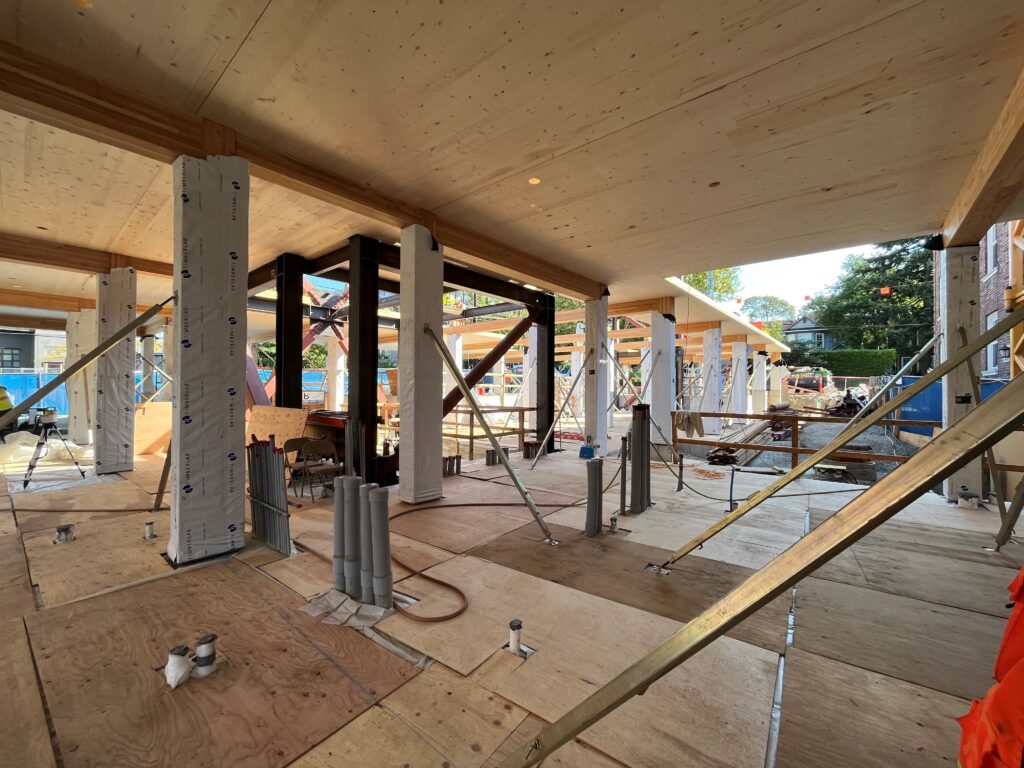
Heartwood Project
For example, the Heartwood project in Seattle is the first Type IV-C mass timber building permitted in the City of Seattle and the first in the U.S. under construction. DCI worked diligently alongside the project team to support discussions with the Seattle Department of Construction & Inspections to highlight grey areas of the code for this new construction typology and to propose solutions that address fire and life safety, both during construction and occupancy.
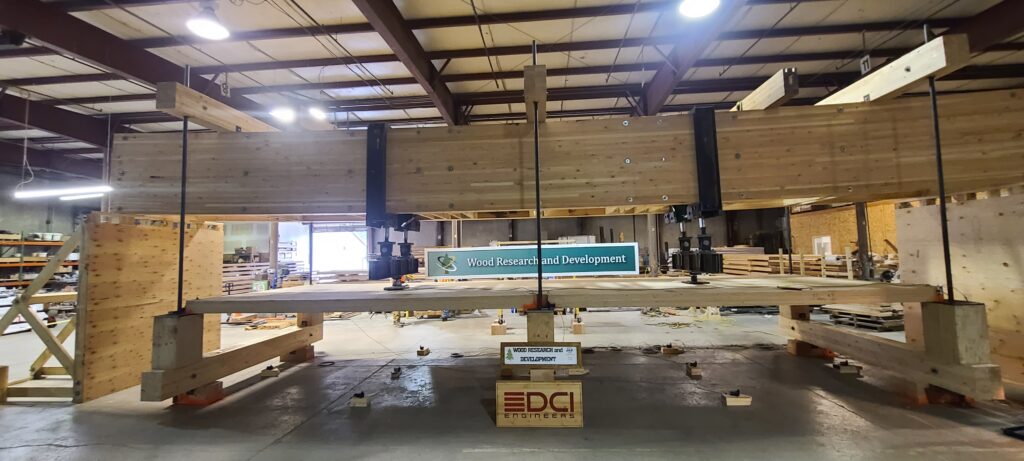
1510 Webster Project
Similarly, our 21-story, 1510 Webster project in Oakland, California is the first high-rise in the world to utilize a point-supported mass plywood panel (MPP) system. This unique system required custom laboratory testing of the MPP to determine the punching shear capacity at the point supports, as well as to validate the deflection and vibration performance. We also reduced our carbon footprint by repurposing the basement walls from the existing structure located on site; helping the team save on foundation construction and temporary shoring.
“As a part of DCI’s corporate responsibility, in addition to our years of sustainable design, Living Building Challenges and LEED® Certified projects, DCI is a signatory firm for the SE2050 Commitment Program. We have joined a growing number of engineering firms that are committed to reducing and eliminating embodied carbon in our projects by 2050, while at the same time actively working to exceed this goal ahead of schedule.”
Vorausschauen
Moving forward, the biggest obstacle we see to meeting our 2050 goal is the lack of widespread commercial production and adoption of low carbon materials, but we’re taking every opportunity to directly educate and incentivize clients and manufacturers. Our sustainability leadership team, along with support of our sustainability committee, and imaginative engineering staff are key to achieving DCI’s embodied carbon goals and keeping the construction industry accountable. We believe all structural firms should make the most impact they can and implore you to participate in the embodied carbon conversation, think outside of the box, and take an active role in reducing the impact of our structures for the betterment of the planet and our industry as a whole.

DCI’s Sustainability Group
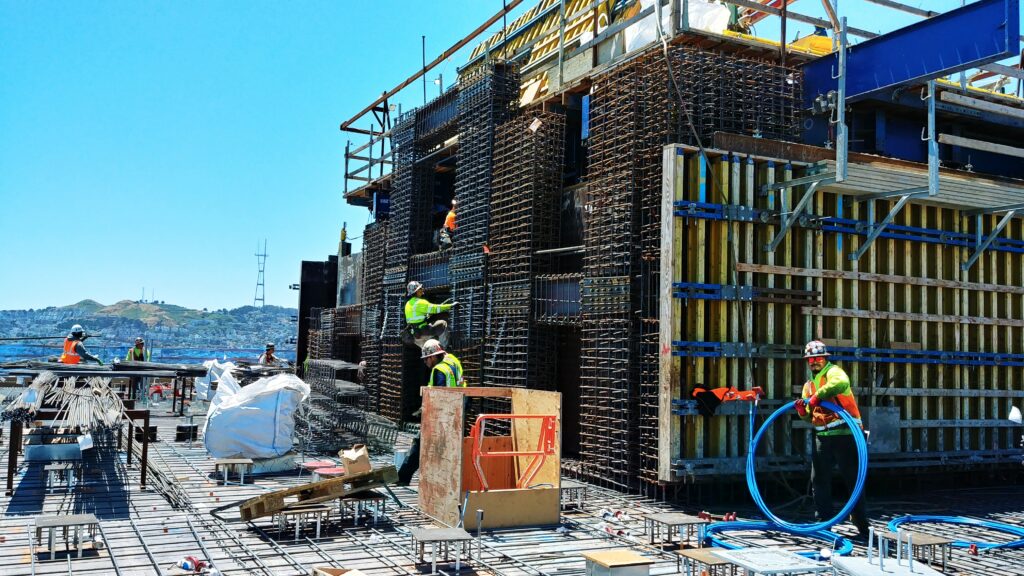
DCI’s Fifteen Fifty & 49 South Van Ness in San Francisco were the first high-rises in the country to utilize high-strength (80 KSI) reinforcing within the shear core boundary elements. The high-strength reinforcement substantially reduced reinforcing quantities and congestion in the cores, thus reducing the amount of material. DCI’s efforts to approve the high strength reinforcing led to its subsequent adoption in the current building code.


